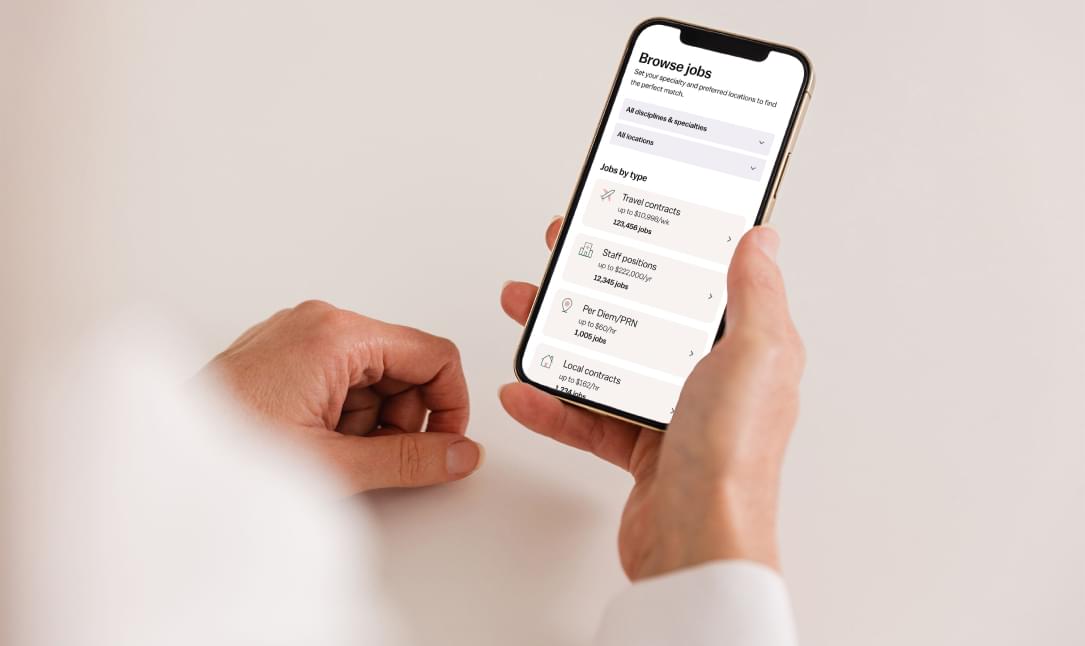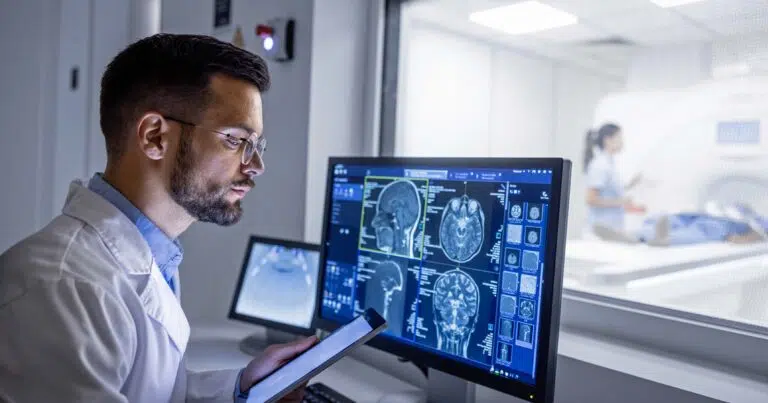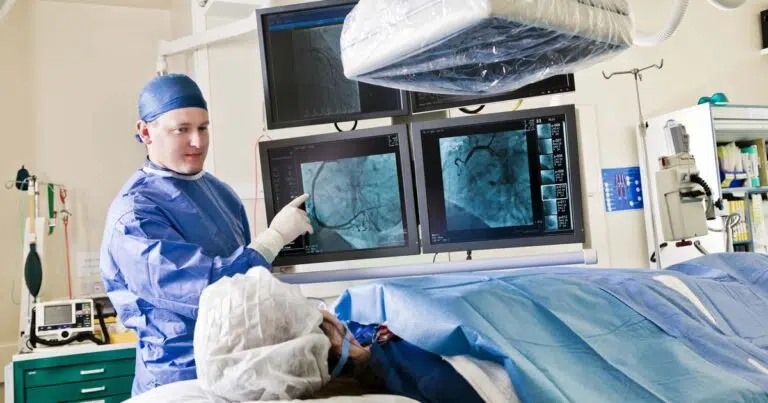Travel Nuclear Medicine Jobs
- 1,949 open jobs
- Jobs added hourly
Travel Nuclear Medicine Technologist
- Waukesha, Wisconsin
- ProHealth Waukesha Memorial Hospital
$2,966-3,452/week
Travel Nuclear Medicine Technologist
- Glens Falls, New York
- Glens Falls Hospital
$2,502-3,422/week
Travel Nuclear Medicine Technologist
- Charleston, South Carolina
- Medical University of South Carolina - University Hospital
$2,717-3,404/week
Travel Nuclear Medicine Technologist
- Scottsbluff, Nebraska
- Regional West Medical Center
$2,662-3,387/week
Travel Nuclear Medicine Technologist
- Bogalusa, Louisiana
- Our Lady of the Angels Hospital
$2,836-3,358/week
Travel Nuclear Medicine Technologist
- Columbus, Ohio
- Ohio State University Wexner Medical Center
$2,920-3,339/week
Travel Nuclear Medicine Technologist
- East Stroudsburg, Pennsylvania
- Lehigh Valley Hospital - Pocono
$2,584-3,286/week
Travel Nuclear Medicine Technologist
- Mount Vernon, Washington
- Skagit Valley Hospital
$2,666-3,226/week
Travel Nuclear Medicine Technologist
- New Brunswick, New Jersey
- Robert Wood Johnson University Hospital New Brunswick
$2,557-3,212/week
Travel Nuclear Medicine Technologist
- Kearney, Nebraska
- Kearney Regional Medical Center
$2,666-3,200/week
Travel Nuclear Medicine Technologist
- Terre Haute, Indiana
- Union Hospital
$2,506-3,110/week
Travel Nuclear Medicine Technologist
- Mission Viejo, California
- Mission Hospital Mission Viejo
$2,760-3,084/week
Travel Nuclear Medicine Technologist
- Oswego, New York
- Oswego Hospital
$3,080/week
Travel Nuclear Medicine Technologist
- Keene, New Hampshire
- Cheshire Medical Center
$2,545-3,074/week
Travel Nuclear Medicine Technologist
- Salinas, California
- Salinas Valley Memorial Hospital
$2,841-3,070/week
Travel Nuclear Medicine Technologist
- Columbus, Ohio
- Ohio State University Wexner Medical Center
$3,069/week
Travel Nuclear Medicine Technologist
- New Haven, Connecticut
- Yale-New Haven Hospital
$2,710-3,037/week
Travel Nuclear Medicine Technologist
- Charleston, South Carolina
- Medical University of South Carolina - University Hospital
$2,391-3,013/week
Travel Nuclear Medicine Technologist
- Charleston, South Carolina
- Medical University of South Carolina - University Hospital
$2,848-3,013/week
Travel Nuclear Medicine Technologist
- Saint Louis, Missouri
- Barnes-Jewish Hospital
$2,524-2,974/week

Travel Nuclear Medicine Jobs Salary Insights
Average Travel Nuclear Medicine Salary
$2,712/week
The average salary for a Nuclear Medicine is $2,712 per week. This is 11% higher than the practicing US average of $2,402.
Last updated on October 26, 2024. Based on 2,720 active jobs on Vivian.com in the last 7 days.
Travel Nuclear Medicine Jobs FAQs
What are the best agencies for Travel Nuclear Medicine jobs?
The agencies on Vivian that currently have the most Travel Nuclear Medicine jobs are Planet Healthcare (111), Fusion Medical Staffing-Radiology (95), and TotalMed Allied (93).
Does Vivian have any staff Nuclear Medicine jobs?
As of Sunday, October 27th 2024, Vivian has 64 Staff Nuclear Medicine jobs listed. These jobs pay $61 per hour on average, with the highest-paying job listed up to $102 per hour.
Does Vivian have any per diem Nuclear Medicine jobs?
As of Sunday, October 27th 2024, Vivian has 20 jobs listed for per diem Nuclear Medicine jobs. These jobs pay $62 per hour on average and up to $86 per hour for the highest-paying role.
Does Vivian have any local contract Nuclear Medicine jobs?
As of Sunday, October 27th 2024, Vivian has 3 listings for local contract Nuclear Medicine jobs. These jobs pay $67 per hour on average, and up to $73 per hour for the top-paying job listed.
Where can I learn more about working as a Travel Nuclear Medicine?
Take a look at Vivian's Travel Nuclear Medicine Career Guide for more information, including required education, responsibilities, pros and cons and more.
What is a Nuclear Medicine Tech?
Nuclear medicine technologists are highly specialized allied health professionals who work closely with nuclear medicine physicians helping to diagnose and evaluate serious conditions, including heart disease and cancer. NMTs specialize in preparing and administering small amounts of radioactive drugs to patients, which are traced through diagnostic scans for imaging or treatment purposes.
Which certifications are best for Nuclear Medicine techs?
Some healthcare employers may prefer nuclear medicine tech job candidates with Basic Life Support (BLS), Registered Technologist in Nuclear Medicine Technology (RT-N-ARRT), Certified Nuclear Medicine Technologist (CNMT-NMTCB) or Computed Tomography (CT-NMTCB), and some may even require specific professional certifications.
How does having a Computed Tomography (CT-NMTCB) increase my value as a Nuclear Medicine tech job candidate?
Having a Computed Tomography (CT-NMTCB) validates your knowledge and skills as a nuclear medicine tech and your dedication to continuing your education in your chosen field. All of which makes you a more desirable job candidate to healthcare employers.
Discover our Travel Nuclear Medicine Jobs Community Hub

Career Options: What’s the Difference Between a CT Technologist and an MRI Technologist?

Highest-Paid Surgical Technology Specialties in 2024

2024 Update: Understanding 2023 Travel Nursing Tax Rules

6 Ways Allied Health Certifications Enhance Your Career

The Fastest Growing Allied Health Careers in 2024
